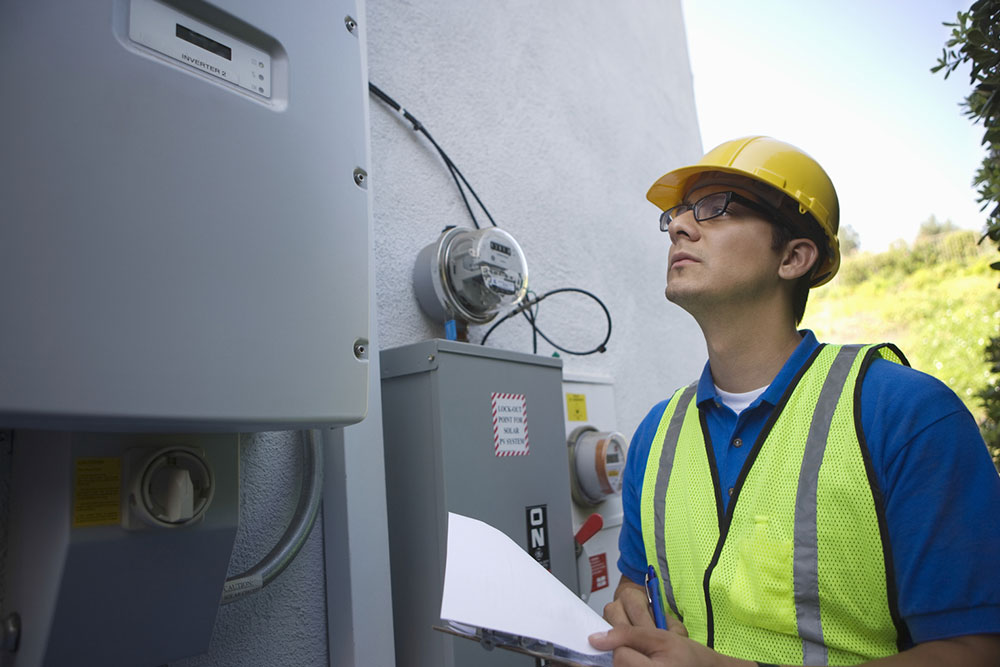Solar Generators – Types, Components, and Things to Consider
With energy reserves depleting progressively due to factors like population explosion and the growing need for resources, energy conservation has become the need of the hour. Many homes and workplaces are leveraging renewable energy sources, like solar energy, to ensure sustainability. This is where solar generators come in, helping convert solar energy into electrical current, especially for emergency use. Here is everything to know before investing in a solar generator:
Types of solar generators
A solar generator collects solar energy through solar panels and then stores it in its built-in battery for emergency use. There are mainly two types of solar generators:

Solar backup generators: These generators are excellent sources of backup power and are typically installed permanently in the home electric panel. Solar backup generators turn on automatically in case of a power outage, ensuring an uninterrupted power supply.
Portable solar generators: Portable solar generators are compact, portable, self-contained power stations ideal for travelers. These generators are used for charging devices and powering small electrical appliances. Due to their portability, they come in extremely handy when trekking, camping, or traveling to a remote place with no electricity supply.
Key components
A solar generator is essentially a portable battery equipped with photovoltaic (PV) panels to collect sunlight.
- Solar panels to capture energy
- A rechargeable battery to store the collected energy
- A solar charge controller to manage the amount of energy that enters a battery
- A solar inverter to convert the energy into usable electricity
Understanding the role of each of these parts can help one promptly detect any issues in the generator in the long run.
Things to consider
Bringing a solar power generator home requires prior planning and several considerations. So, to help one get started, here are some things to consider while buying solar generators:
Energy requirements: The first step toward choosing the right generator for home use is to understand and assess energy requirements. This will depend on how many appliances and lights one needs to run and for how long, say while traveling or during an outage. Accordingly, one may choose to install a small or large solar generator. The best way to calculate the energy requirements is to make note of the number of electronic devices used at home, the type of devices, and their energy ratings.
Storage: A solar generator needs to be kept in a safe and dry place when not in use. It is crucial to ensure that the generator is not exposed to harsh weather elements in order to prevent mechanical snags in the future. So, one should determine a place to store the solar generator before investing in one.
Frequency of use: It is important to consider how often one needs to use a solar generator. If one plans on using it occasionally, then a smaller model serves the purpose. However, if one plans on traveling with a solar generator often or is dealing with frequent outages, then they should consider buying a larger model that can provide more power.
Budget: Setting a budget is important to avoid any financial crunch later, particularly because a solar generator is more expensive than a traditional gas generator. For instance, a solar generator costs anywhere from $1,000 to $3,000. However, larger systems with better capacities can cost anywhere between $5,000 and $15,000. On the other, gas generators cost $1,000 on average; however, they require regular maintenance, adding to their overall cost.
Pros and cons: Here are a few advantages to consider:
- Solar generators are lighter than gas-powered generators, making them ideal for outdoor activities like camping or emergencies like power outages. Some generators come with a handle to enhance portability.
- Solar generators are extremely easy to operate and maintain. All one has to do is turn them on, connect devices, and begin drawing power. Consequently, one can easily continue indoor or outdoor activities during power cuts. Further, unlike gas generators, solar-powered variants do not come with moving parts that require frequent oiling and maintenance.
- Solar generators are an environment-friendly solution, as solar power does not emit greenhouse gasses or cause air pollution. Further, solar generators are less likely to emit toxic gases like gas-powered generators, thereby contributing to a clean, pollution-free environment.
On the other hand, solar generators come with the following drawbacks:
- While solar energy may be harnessed even in areas with less sunlight, the energy supply in these regions may fall short of requirements. So, one may have to rely on gas generators in such areas.
- Solar generators usually require a higher initial investment than traditional gas-powered generators. However, gas generators are harder to maintain, increasing the overall cost of owning them.
- Solar generators may not be the best option for instantaneous energy supply, as they need to be recharged and are typically slower than gas generators.
